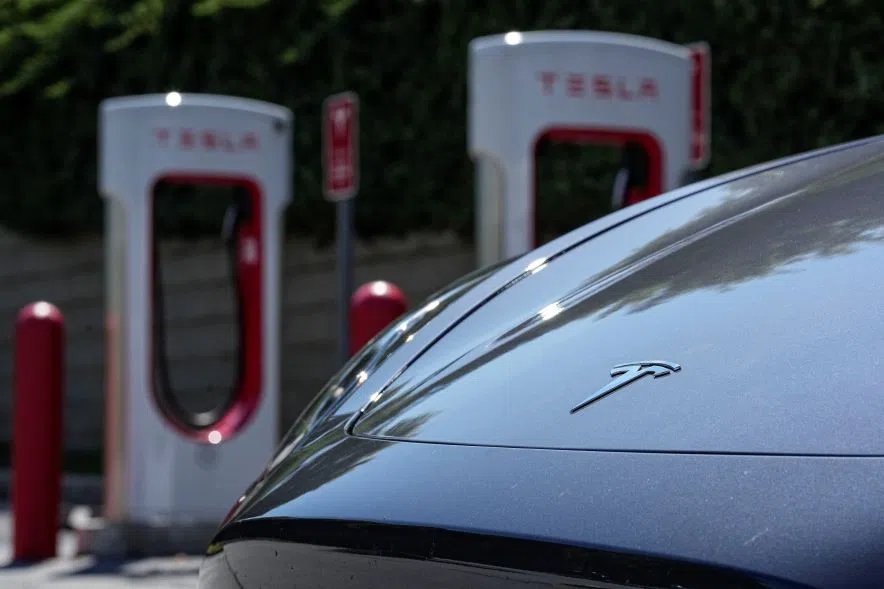Canada’s federal government has unveiled its plan to phase out the sales of gas-powered vehicles by 2035.
The new regulations, unveiled on Tuesday by Environment Minister Steven Guilbeault, require automakers to gradually phase out the sales of combustion-engine vehicles in favour of electric models or hybrids.
While full details are expected to be published this week, the announcement said 20 per cent of all vehicles offered for sale in Canada will need to be fully electric or plug-in hybrid models by 2027.
That number is set to go up incrementally, reaching 60 per cent in 2030 and 100 per cent by 2035.
Guilbeault said the new rules will encourage manufacturers to produce more electric vehicles.
“There’s no mistaking it. We are at a tipping point,” the environment minister said.
The decision follows a number of recent environmental policy announcements by Guilbeault, including a cap on methane leaks and releases by the oil and gas industry, a cap-and-trade carbon credit system and new rules around power generation.
Pointing out that two provinces – Quebec and B.C. – are already above the 20 per cent mark for electric vehicle sales, the environment minister encouraged the remaining provinces to get “on board” with the plan.
That may not be quick to happen in Saskatchewan, where many of Guilbeault’s aggressive environmental targets have come under harsh criticism from the provincial government and Premier Scott Moe.
As well, in 2021, the Saskatchewan government introduced a $150 annual charge on electric vehicles registered in Saskatchewan. The fee is collected by Saskatchewan Government Insurance at the time of registration.
When the charge was announced, the government noted that its fuel tax was “directed at preserving and improving the provincial highway system. Currently, the Fuel Tax does not apply to electric vehicles, which leaves traditional vehicles shouldering a greater share of highway maintenance.”
The $150 fee was introduced to even out that responsibility.
Despite the lofty targets set by Guilbeault, only about 10 per cent of new vehicles registered in Canada were electric during the first quarter of 2023. That means electric vehicle sales would essentially need to double over the next three years to meet the 2027 goal.
The plan also includes a credit system, which allows automakers to bank or sell credits for the electric vehicles they sell, while those that sell fewer electric vehicles than prescribed by Ottawa will be required to purchase credits.
— With files from The Canadian Press











